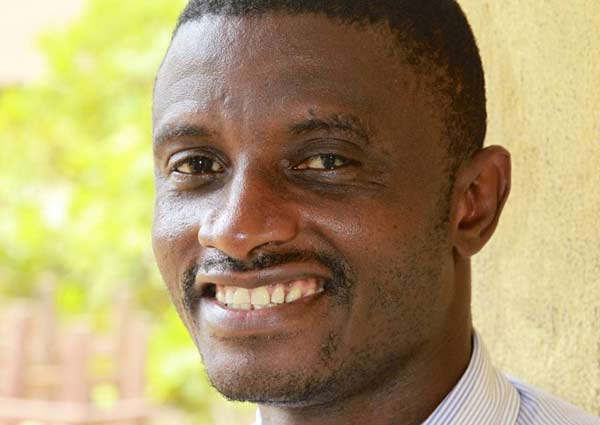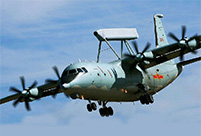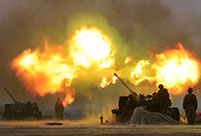 Top 100 beauties in the world!
Top 100 beauties in the world!
 Gallery: Who is the most beautiful one?
Gallery: Who is the most beautiful one?
 If you like autumn, put your hands in the air!
If you like autumn, put your hands in the air!
 Fan Bingbing's "Queen style" in new play
Fan Bingbing's "Queen style" in new play
 Lingerie show at 2014 Miss China
Lingerie show at 2014 Miss China
 J-10 fighters show aerobatic stunts in smog-free sky
J-10 fighters show aerobatic stunts in smog-free sky
 Charming contestants of Shanghai Int’l Model Contest
Charming contestants of Shanghai Int’l Model Contest
 Most amazing chi-pao beauties
Most amazing chi-pao beauties
 7 deadly animal attacks
Russia to launch 70 Proton rockets by 2020: official
7 deadly animal attacks
Russia to launch 70 Proton rockets by 2020: official |
| Martin Salia, a Sierra Leonean doctor sick with Ebola, is pictured in this handout photo taken February 2013 and provided by the United Brethren (UB). [Photo/Agencies] |
A surgeon who contracted Ebola while working in Sierra Leone died early on Monday of the disease at a Nebraska hospital, medical officials said, the second death from the virus out of 10 known cases treated in the United States.
Dr. Martin Salia, a native of Sierra Leone and a permanent U.S. resident, had been in very critical condition when he arrived at the Nebraska Medical Center on Saturday afternoon, Dr. Phil Smith, director of the biocontainment unit, said at a news conference.
"He had no kidney function, he was working extremely hard to breathe and he was unresponsive," Dr. Daniel Johnson said.
Salia was put on dialysis within hours of his arrival and required intubation and mechanical ventilation within 12 hours. He was given plasma from an Ebola survivor and the drug ZMapp provided by Mapp Biopharmaceutical on Saturday, said Dr. Chris Kratochvil, associate vice chancellor for clinical research at the University of Nebraska Medical Center.
Salia, 44, who was chief medical officer at United Methodist Kissy Hospital in Freetown, Sierra Leone, tested positive last week for Ebola, the United Methodist Church's news service said.
The news service said it was unclear how or where Salia contracted Ebola. Salia, who had trained as a doctor in Sierra Leone's College of Medicine, also worked at several other medical facilities.
"Our hearts go out to his grieving family," Bishop Warner H. Brown Jr., president of the United Methodist Council of Bishops, said in a statement. "Dr. Salia was a dedicated Christian physician who was living out a calling to serve others."
Salia was flown to the United States at the request of his wife, an American who lives in Maryland.
Salia was the third Ebola patient treated at the Omaha hospital. The two other Ebola patients, who were infected in Liberia, recovered.
Smith said staff who worked directly on Salia will take their temperatures twice a day, check daily for symptoms and log results into a database but will not be limited from working.
"As long as they are asymptomatic they are considered safe," Smith said. "Even if they were infected, they would not spread it to anyone else."
The current outbreak of Ebola is the worst on record. It has killed at least 5,177 people, mostly in Sierra Leone, Liberia and Guinea, according to the latest figures from the World Health Organization.
 Hot girls at motor show
Hot girls at motor show  Official trailer of Y-20
Official trailer of Y-20 Photos: Xi Jinping in Fujian
Photos: Xi Jinping in Fujian Standard faces for each countries
Standard faces for each countries China-made military transport aircraft gets ready
China-made military transport aircraft gets ready World Pole Dance Championship in China
World Pole Dance Championship in China Shocking! Photos of Chinese fighters revealed
Shocking! Photos of Chinese fighters revealed 59-year-old Liu Xiaoqing still looks stunning
59-year-old Liu Xiaoqing still looks stunning  In pics: PLA stages live-fire drill in NE China
In pics: PLA stages live-fire drill in NE China  Top 10 most dangerous jobs in the world
Top 10 most dangerous jobs in the world  Top 10 fifth generation jet fighters in the world
Top 10 fifth generation jet fighters in the world Top 10 Chinese goddesses
Top 10 Chinese goddesses  Top 20 hottest women in the world in 2014
Top 20 hottest women in the world in 2014 Top 10 pure beauties in showbiz
Top 10 pure beauties in showbiz  Top 10 world's highest-paid models 2014
Top 10 world's highest-paid models 2014 The most gorgeous Chinese women
The most gorgeous Chinese women Top 10 most handsome faces in Asia
Top 10 most handsome faces in AsiaDay|Week|Month